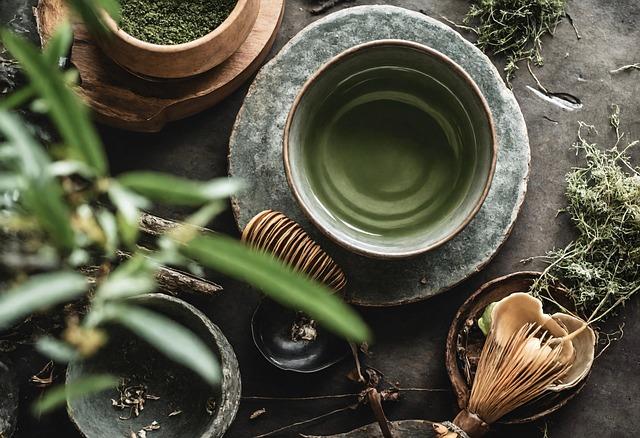In a move that could reshape the global tea industry, experts and producers in Japan are exploring the possibility of granting matcha a protected designation of origin, similar to France’s esteemed Champagne. This growing conversation highlights efforts to preserve the authenticity, quality, and cultural heritage of Japan’s signature green tea powder amid rising international demand and imitation products. NPR delves into the implications of such a designation, examining how it might safeguard Japanese matcha’s legacy while influencing market dynamics worldwide.
Japan’s Matcha Faces Challenges Amid Growing Global Demand
As global enthusiasm for matcha surges, Japan’s traditional tea farmers face mounting pressures from skyrocketing demand and imitation products flooding international markets. Unlike France’s strict appellation d’origine contrĂ´lĂ©e (AOC) system that safeguards Champagne, Japan lacks formal geographic protections for its matcha, leaving authentic producers vulnerable. Without such protections, mass-produced or inferior-quality matcha labeled as “Japanese” can erode consumer trust and undercut the prestige built by centuries of meticulous cultivation and artisanal craftsmanship.
Advocates argue that implementing a designation-of-origin framework could reinforce Japan’s market position by:
- Ensuring authenticity through controlled production standards
- Preserving regional heritage and traditional farming methods
- Protecting economic interests of small-scale farmers
- Educating consumers about the distinctions between matcha varieties
Such measures would not only elevate matcha’s global brand but also safeguard the cultural legacy that distinguishes it from mimic counterparts.
| Region | Annual Matcha Output | Protection Status |
|---|---|---|
| Uji (Kyoto) | 500 tons | None |
| Shizuoka | 300 tons | None |
| Nishio (Aichi) | 150 tons | None |
Learning from France How Geographic Indications Can Preserve Cultural Heritage
France’s approach to protecting its most iconic products through Geographic Indications (GIs) offers a powerful blueprint for preserving cultural heritage worldwide. This system legally ties a product to its region of origin, ensuring traditional methods and local quality standards are maintained. Notably, the protection of “Champagne” restricts the name to sparkling wine produced exclusively in the Champagne region under stringent production rules. This not only safeguards the product’s authenticity but also uplifts the entire region’s economy by fostering a reputation built on heritage and quality.
By adopting similar frameworks, Japan could fortify the identity of matcha beyond being a mere green tea powder to a symbol of cultural pride and craftsmanship. Key benefits of Geographic Indications include:
- Preservation of traditional production techniques, ensuring authenticity for consumers.
- Economic empowerment of local farmers and artisans through premium pricing based on origin.
- Global recognition that helps differentiate regional specialties in an increasingly homogenized market.
| Country | Protected Product | Cultural Impact |
|---|---|---|
| France | Champagne | Strengthened regional identity & economic growth |
| Italy | Parmigiano-Reggiano | Traditional craftsmanship preserved |
| France | Champagne | Strengthened regional identity & economic growth |
| Italy | Parmigiano-Reggiano | Traditional craftsmanship preserved |
| Spain | Jamón Ibérico | Enhanced cultural heritage & market value |
| Japan | Matcha (proposed) | Potential to elevate cultural pride & artisanal quality |
| Policy Element | Expected Impact |
|---|---|
| GI Protection | Preserves authenticity, limits counterfeit products |
| Quality Standards | Elevates matcha quality and consumer trust |
| Global Advocacy | Boosts international recognition and legal enforcement |
| Educational Outreach | Increases consumer awareness and demand |
Final Thoughts
As discussions around cultural preservation and economic branding continue to gain momentum, the proposal to protect Japan’s matcha with a designation similar to France’s Champagne raises important questions about heritage, authenticity, and global markets. While such measures could safeguard the integrity of this traditional tea and empower local producers, they also invite a broader conversation about how cultural products are valued and protected in an increasingly interconnected world. As Japan’s matcha continues to captivate consumers worldwide, the coming months will likely reveal whether this iconic tea will receive the legal recognition its advocates believe it deserves.




